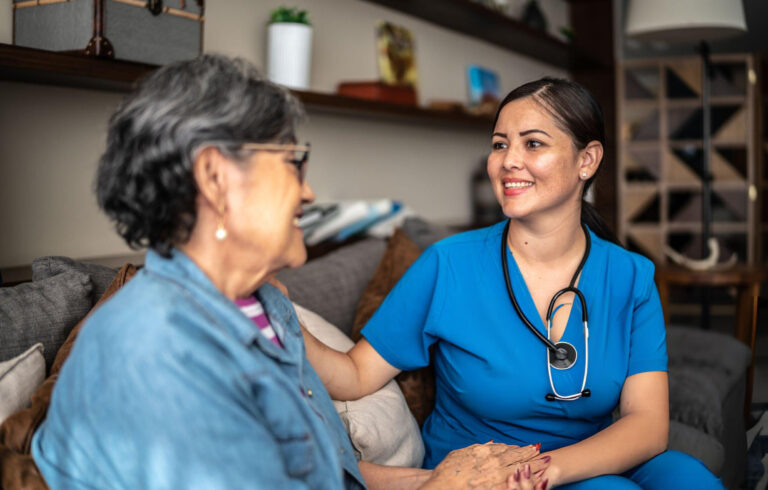How CNAs Can Improve Patient Outcomes: Tips and Best Practices

Certified Nursing Assistants (CNAs) play a pivotal role in enhancing patient outcomes in healthcare settings. While doctors and nurses may develop treatment plans, CNAs are the ones who spend the most time with patients, providing day-to-day care that significantly impacts their recovery and overall well-being. In this blog, we will discuss various ways CNAs can improve patient outcomes by incorporating best practices and focusing on compassionate care.
Clear and effective communication is vital in any healthcare setting. CNAs must ensure that they understand patients’ needs, preferences, and concerns. This requires active listening and asking the right questions to gain a comprehensive understanding of the patient’s condition. Additionally, CNAs must communicate effectively with other healthcare staff, accurately reporting changes in a patient’s condition and collaborating with nurses and doctors to adjust care plans as needed. Strong communication skills help prevent misunderstandings and ensure that patients receive the care they need.
CNAs are often responsible for performing tasks that can make patients feel vulnerable, such as bathing, dressing, and toileting. It is essential for CNAs to approach these tasks with empathy, ensuring that patients feel respected and dignified. Simple actions like explaining each step before proceeding, maintaining privacy, and offering choices can make a significant difference in a patient’s comfort level. When patients feel respected and cared for, it positively affects their mental and emotional health, which in turn supports better physical outcomes.
CNAs are the eyes and ears of the healthcare team, often being the first to notice subtle changes in a patient’s condition. Whether it’s a shift in mood, a change in appetite, or the development of a new symptom, CNAs must be vigilant and proactive in monitoring patients. Promptly reporting these changes to nurses or physicians can lead to timely interventions that prevent complications and promote quicker recoveries.
Encouraging patients to be as active and independent as possible is crucial for their recovery and overall health. CNAs can assist with exercises, help patients with mobility aids, and encourage participation in daily activities. Promoting independence not only helps maintain physical health but also boosts patients’ self-esteem and mental well-being. It’s important for CNAs to balance support with encouragement, allowing patients to do as much as they can on their own while providing assistance when necessary.
The healthcare field is constantly evolving, and CNAs must stay up-to-date with the latest practices, techniques, and knowledge. Continuing education and professional development are key to improving patient outcomes. CNAs should seek opportunities to learn new skills, attend workshops, and stay informed about the latest trends in patient care. By continually improving their expertise, CNAs can provide better care and contribute to more positive patient outcomes.
A strong relationship between CNAs and patients is built on trust and rapport. CNAs should strive to create a warm and supportive environment where patients feel comfortable expressing their needs and concerns. Simple gestures like smiling, making eye contact, and showing genuine interest in the patient’s well-being can go a long way in building trust. When patients trust their caregivers, they are more likely to follow care plans, communicate openly, and engage in their own recovery, all of which contribute to better outcomes.





